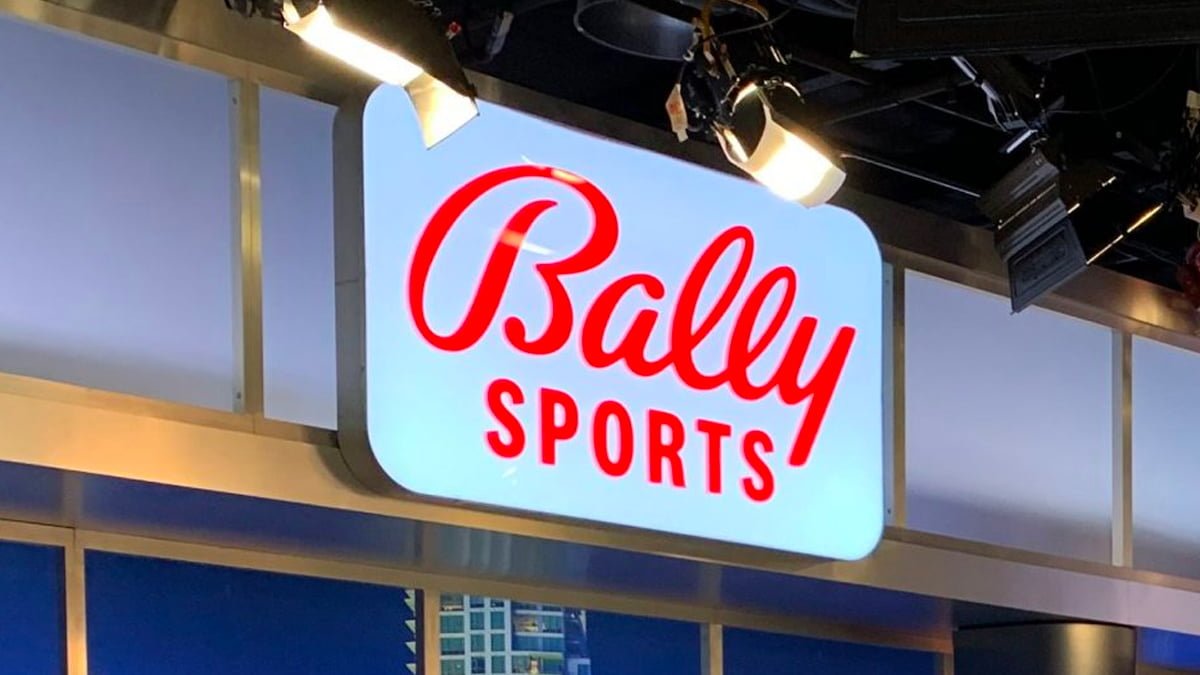On Wednesday morning, a Houston bankruptcy court held a hearing regarding the status of Diamond Sports Group, which filed for Chapter 11 bankruptcy protection in March and has since been embroiled in litigation regarding the future of its broadcast rights.
During testimony earlier in the year, Major League Baseball Commissioner Rob Manfred revealed that Diamond had threatened bankruptcy should the league not grant it the coveted direct-to-consumer broadcast rights to build out its Bally Sports+ platform. Throughout the MLB season, the company selectively rejected contracts for the San Diego Padres and Arizona Diamondbacks, prompting the league to assume local broadcasting responsibilities – such as production and dissemination.
On the night before the hearing, Diamond Sports Group’s parent company, Sinclair, Inc., filed a limited objection to the debtors’ emergency motion to continue its operations through September 2024 and then liquidate the business.
Within the document, the company points out that there is no mention of the $172.2 million in remuneration that is currently unpaid under an existing management services agreement. Upon the conclusion of the 2024 MLB season, the company affirms that it will be owed $253.8 million in these fees, payments it claims must be made within their own business plan.
Earlier in the year, Diamond sued its parent company, alleging that it had engaged in misconduct that includes the “fraudulent transfer of assets, unlawful distributions and payments, breaches of contracts, unjust enrichment and breaches of fiduciary duties.”
Sinclair was reportedly looking to reacquire Diamond Sports Group for $850 million, a holding company that was created when Sinclair purchased 22 of the then FOX Sports-branded regional sports networks from The Walt Disney Company. Disney was forced to divest these assets as part of its acquisition of Twenty-First Century Fox under an antitrust agreement with the U.S. Department of Justice.
“As Sinclair saw industry headwinds develop, rather than support Diamond, Sinclair didn’t just sap it dry; it sacked its subsidiary shamelessly, pillaging it for a billion-and-a-half dollars in a year and a half,” a lawyer for Diamond Sports Group said, “burning every other stakeholder here today and many, many others.”
Judge Christopher M. Lopez, who is hearing the bankruptcy case, approved the agreement with the National Basketball Association during the hearing on Wednesday morning. Under the new terms with the NBA, the previous media rights contracts have been modified to guarantee the games will remain on the networks this season and that these rights will be returned to the league upon the season’s conclusion.
Although a similar deal has yet to have been reached with the National Hockey League, an agreement could purportedly come as soon as Friday. Additionally, an order extending the exclusivity period and solicitation exclusivity period by 60 days was approved by Judge Lopez, which runs through Nov. 29, 2023 and Jan. 29, 2024, respectively.
David Seligman, an outside counsel for Sinclair, Inc., expressed the sentiment within the company towards these agreements, which suggests that an end is in sight for the indirect wholly-owned subsidiary. Shortly after Sinclair’s motion, Diamond Sports Group filed an objection that sought to have the debtors assume or reject the management services agreement (MSA).
Diamond is currently paying Sinclair an amended rate for these services, which it currently needs to be provided since its parent company either exclusively or jointly controls software, hardware, and license agreements required for advertising sales, broadcasts, and programming, a triad that encompasses a majority of Diamond’s revenue. The cooperation agreement between Diamond and its stakeholders, however, does not become effective unless the MSA is assumed or rejected by Nov. 30, 2023.
“Particularly in light of the one-sided nature of the MSA, and Sinclair’s status as an insider of the Debtors, the Debtors should not be forced to prioritize Sinclair’s contract over the Debtors’ other contracts and the interests of the many diverse stakeholders in these cases just because Sinclair says so,” Diamond Sports Group wrote in its objection. “Here, if the Debtors assume the MSA now, they may be stuck with a contract that the Debtors will not need for the duration of the contract, burdening these estates with unnecessary administrative claims to the detriment of all creditors other than Sinclair. And if the Debtors reject the MSA now, the Debtors’ business would suffer immensely.”
The agreement outlines a process that “is designed to allow the Debtors’ counterparties, including their team, league, and distributor partners, to smoothly transition operations over the course of [their] seasons without an abrupt cessation of broadcasting.” It is the means by which the pact with the NBA was brought about and subsequently agreed to by the court. MLB will file a motion within the court later on Wednesday about how it believes the forthcoming baseball season should unfold, one that is ostensibly the last between these two parties.
“To Sinclair folks who originally acquired Diamond, they’re kind of bummed,” Seligman stated. “They’re bummed that this business that they put in a billion-and-a-half of equity value in is now going to be shut down. There’s going to be people losing their jobs…. Diamond’s business is going to go away.”
A meditation session between Sinclair and Diamond is currently scheduled for Dec. 7, 2023, while Judge Lopez tentatively scheduled a Dec. 8, 2023 hearing regarding the objections from Sinclair and MLB.










